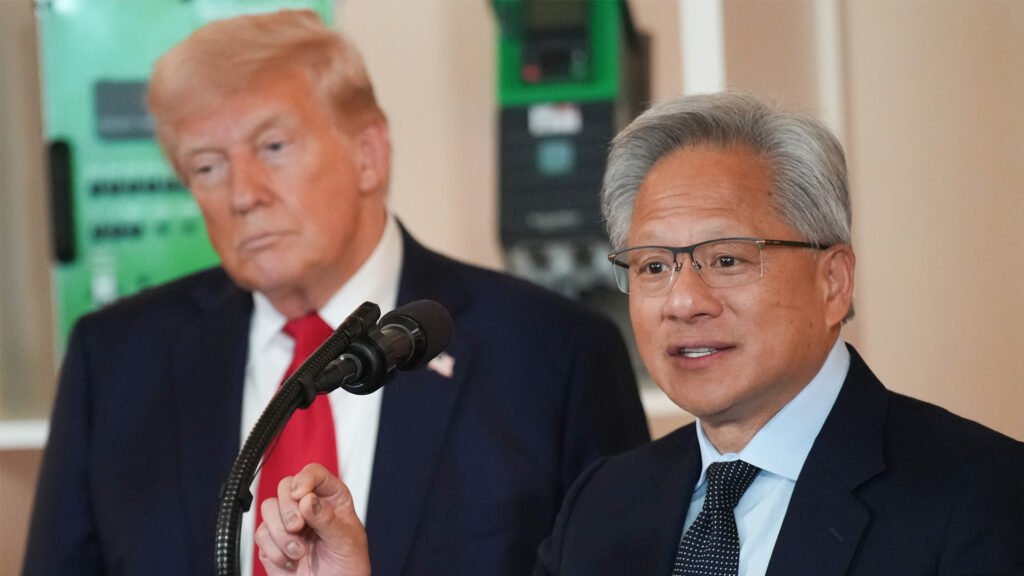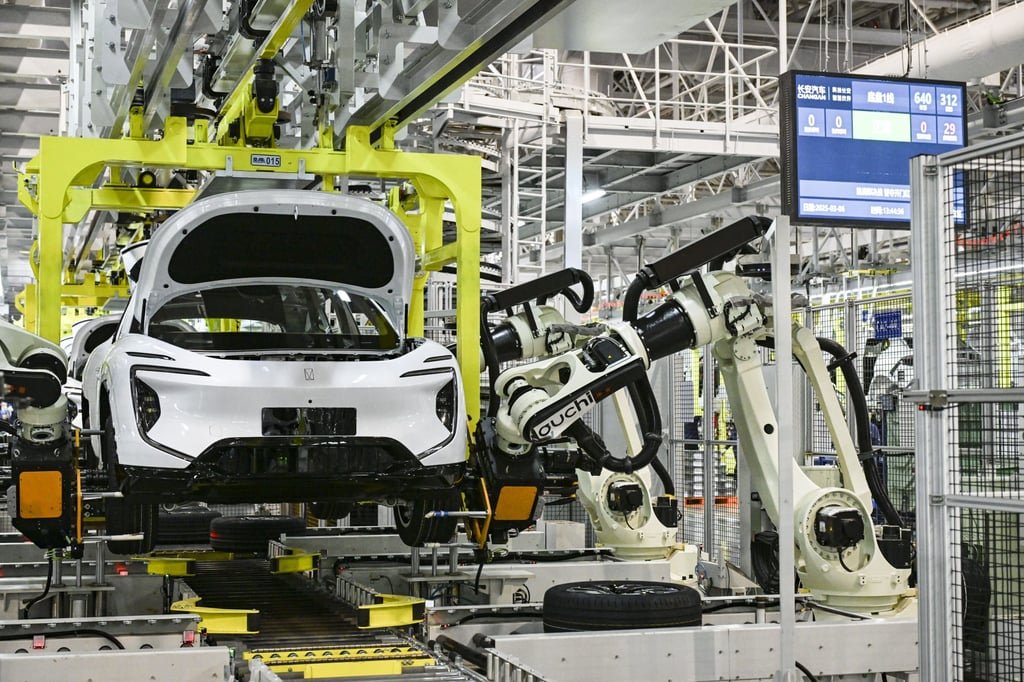Nvidia (NVDA) has reportedly cut an unprecedented deal with the Trump administration to save its China business that would entail sharing as much as $3 billion in revenue with the US government for the current fiscal year to resume sales of its H20 chips.
Multiple media outlets have confirmed with unnamed sources that leading AI chipmaker Nvidia and rival Advanced Micro Devices (AMD) cut deals with President Trump to fork over 15% of their revenues from China in exchange for export licenses, following an initial report of the news from the Financial Times. Trade policy experts cited by the Washington Post said the deals amounted to blackmail and violated the US Constitution’s ban on export taxes.
Nvidia did not confirm its new arrangement with the Trump administration but a spokesperson told Yahoo Finance: “We follow rules the U.S. government sets for our participation in worldwide markets. While we haven’t shipped H20 to China for months, we hope export control rules will let America compete in China and worldwide.”
Nvidia stock fell fractionally Monday while AMD shares pared initial losses to trade flat.
China is one of Nvidia’s most important markets, accounting for 13% of the company’s revenue in its prior fiscal year. Nvidia has repeatedly introduced new, lower-power chips to sell to China in the face of tightening US export controls, as the government has cited national security concerns. The chipmaker began sales of its H20 chips — graphics processing units based on its prior-generation Hopper architecture — in 2024.
Nvidia got hit with a surprise ban on exports of its H20 chips to China by the Trump administration in April, costing the company billions in lost sales and sending the stock spiraling. The ban was later reversed in July, drawing national security concerns from lawmakers worried over China’s development of AI.
Wall Street analysts projected that Nvidia would recoup $15 billion in lost sales in the second half of the year after the ban was lifted to hit about $20 billion in revenue from China for its fiscal year 2026, which ends next January — meaning the US government could get $3 billion from its deal with the company.
Bernstein analyst Stacy Rasgon said Nvidia making some revenue from China is better than none: “At the end of the day we believe it is better to allow NVIDIA (and AMD) to sell AI into China, as failure to do so effectively hands the Chinese AI market over to Huawei, and encourages the coalescence of Chinese developers around Huawei’s architecture and ecosystem (undesirable).”
Huawei is the Chinese tech giant developing chips to rival Nvidia’s H20 ones. Nvidia has argued that export controls leave room for Chinese rivals to advance.
Rasgon noted that it’s unclear whether Nvidia’s new revenue sharing agreement with the US covers only its H20 chips or if it also covers its new chips based on its latest Blackwell architecture designed for the Chinese market unveiled in July. Nvidia expects China to transition to buying Blackwell-based products Nvidia is developing to comply with export controls, Rasgon said.
Still, DA Davidson analyst Gil Luria said the new deal could end up “encouraging China to move away from buying its chips from American companies and focusing more on domestic suppliers such as Huawei,” because the Chinese government wouldn’t want companies effectively handing over money to the US government.
Laura Bratton is a reporter for Yahoo Finance. Follow her on Bluesky @laurabratton.bsky.social. Email her at laura.bratton@yahooinc.com.
Click here for the latest technology news that will impact the stock market
Read the latest financial and business news from Yahoo Finance






